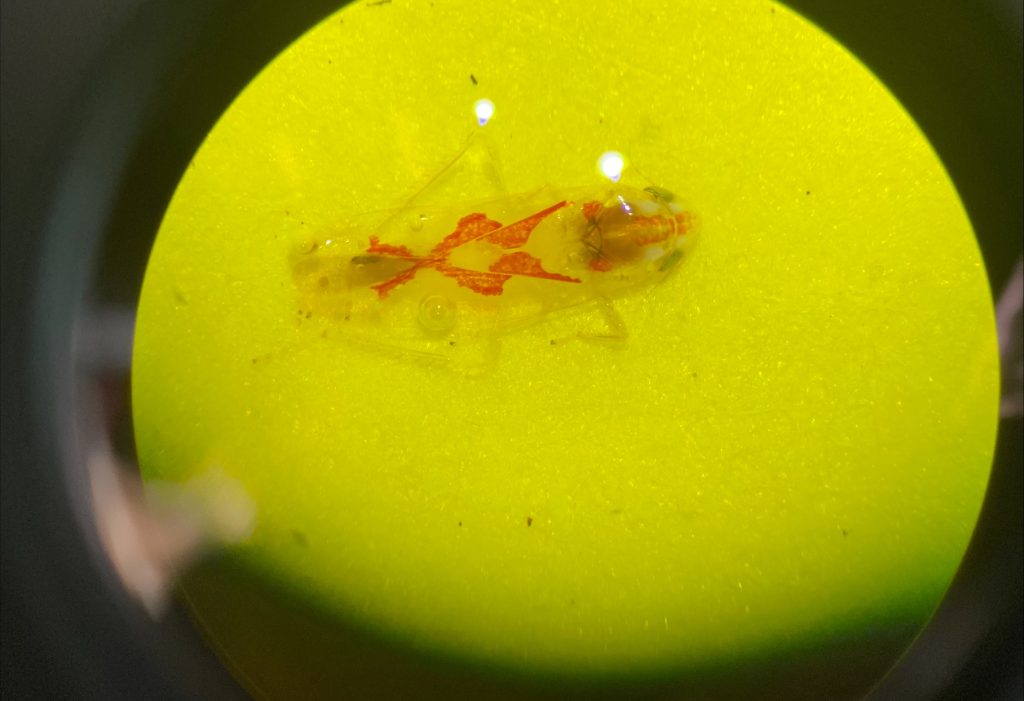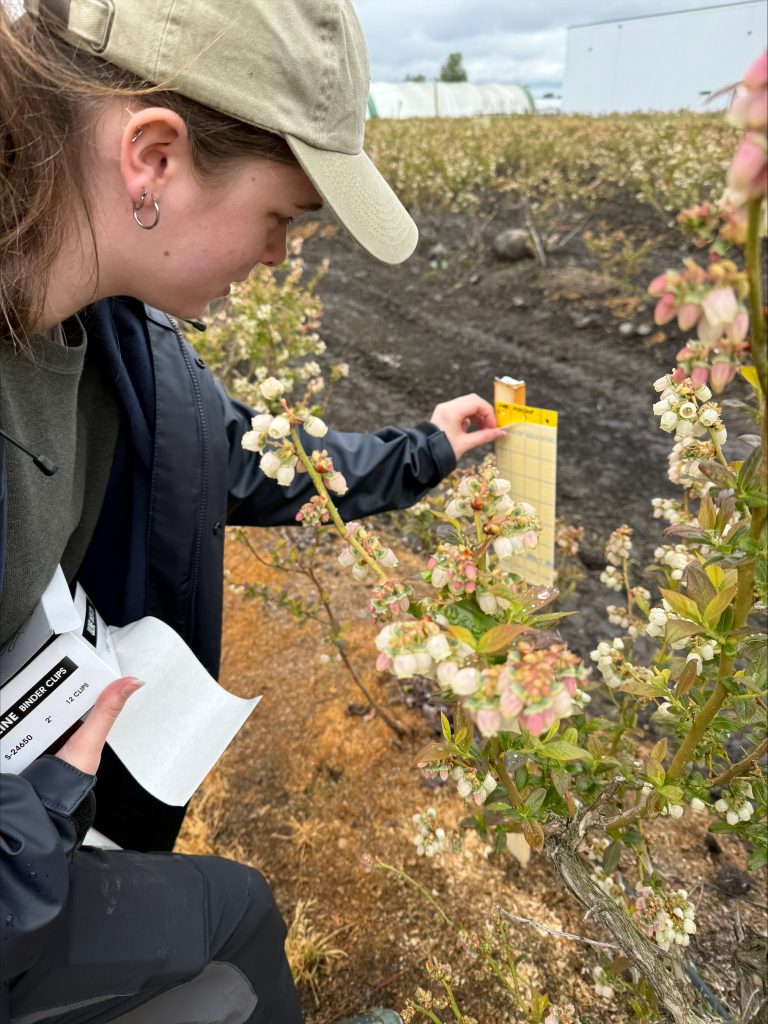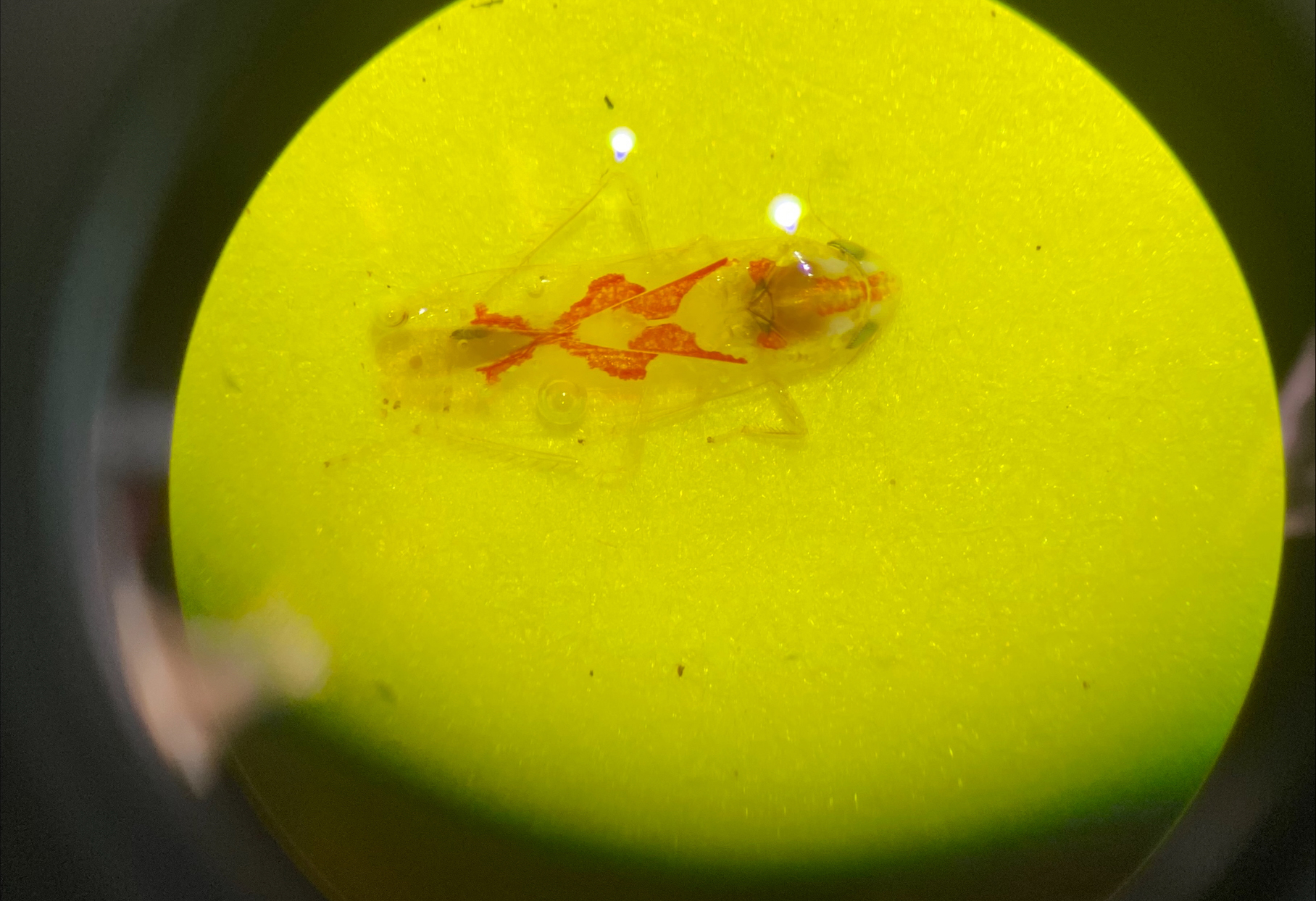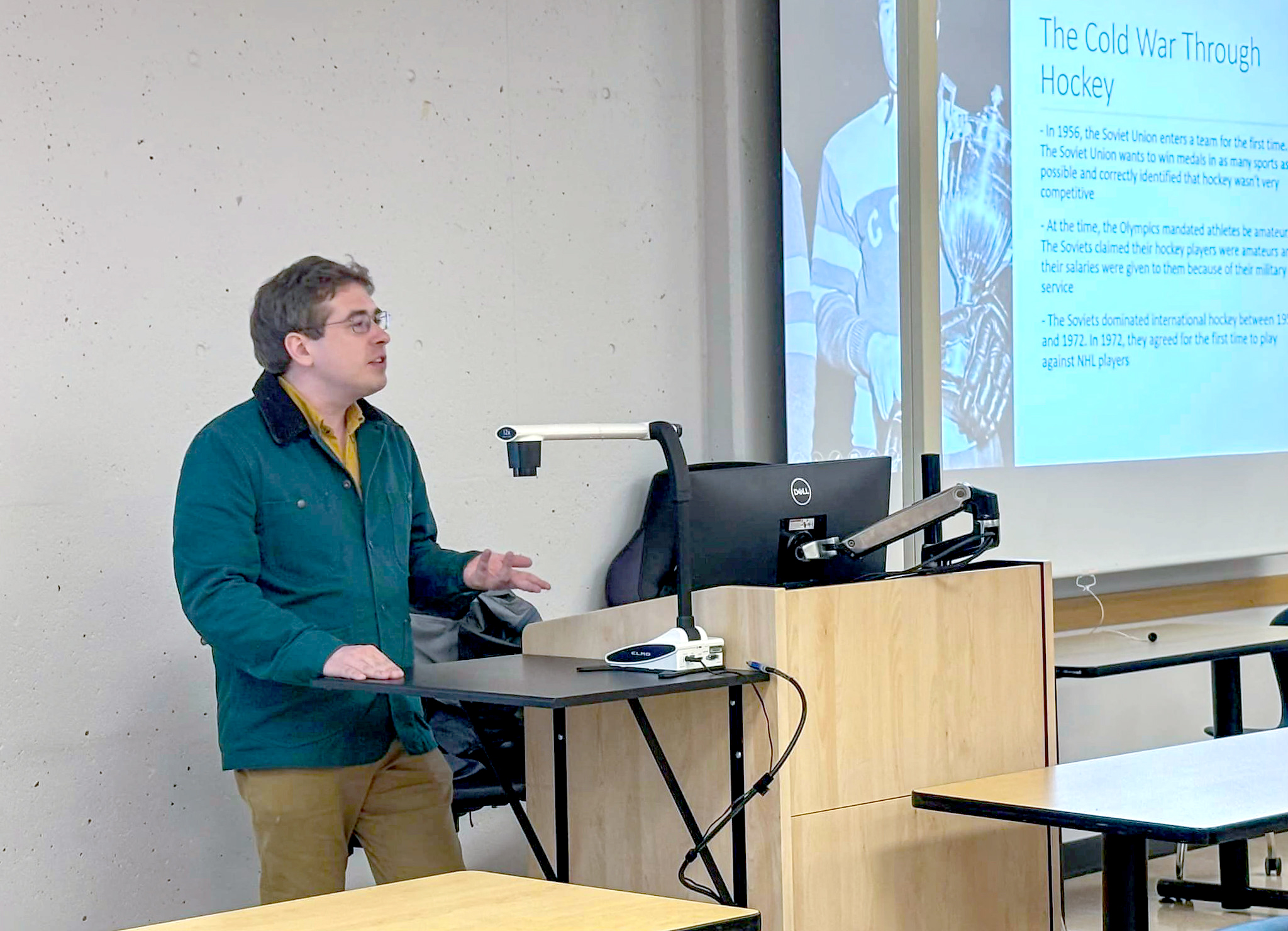UFV’s BERRI Lab monitors for invasive leafhoppers

A wave of plant-eating insects is slowly but steadily making its way north. With climate change lengthening their migration window, it’s not a matter of if, but when leafhoppers arrive. UFV’s BERRI (Berry Environmental Resilience Research & Innovation) Lab, led by Dr. Lauren Erland, is co-leading Project Leaf Hope, a national effort that aims to make sure we’re ready.
“Leafhoppers are an agricultural pest similar to aphids,” explains Lauren, who holds UFV’s Canada Research Chair in Berry Horticulture. “They extract the inside content out of plant cells, which makes them disease spreaders for plants in the same way mosquitoes are for humans.”
The pan-Canadian study is led by Université Laval in Quebec City. There are research groups in Quebec, Ontario, Nova Scotia, Alberta, Manitoba, Saskatchewan, and BC, with UFV serving as the academic lead for BC.
Project Leaf Hope is funded by a Natural Sciences and Engineering Research Council of Canada (NSERC) Alliance Grant in sustainable agriculture.
Leafhoppers are not yet a major problem in our province, although Lauren says grape and blackberry growers have been affected by the pests. The BERRI lab’s work will focus on blueberry and strawberry crops, anticipating leafhoppers becoming an issue.

“Most of our other crops don’t have leafhoppers right now, but what we’re seeing is that leafhoppers that used to be restricted to the US and further south are starting to show up in Ontario and Quebec, and even Nunavik,” she notes. “With that comes the risk of additional plant diseases.”
Cranberry plants can be impacted by false blossom disease, causing them to grow abnormal flowers that don’t produce fruit. Lauren says it’s a big issue in the eastern provinces, but not in the west. Similarly, a disease called blueberry stunt is not yet an issue in BC but could be carried here by leafhoppers.
“Our goal is to monitor for leafhoppers and these types of diseases,” Lauren says. “As we have warmer summers and warmer winters, pests migrate further and further north, and we want to know the minute they show up.”
Lauren and her team will be working with 15 blueberry growers and nine strawberry growers this summer. Ideally, they wouldn’t see a single leafhopper, but that’s unlikely, she notes. When they do appear, they’ll be screened for phytoplasmas (disease-causing microorganisms).
“From a big picture point of view, we’d like to develop the use of smart climate stations and traps that can capture these insects without needing a human pest scout out in the field,” Lauren suggests. “That also allows growers to finely tune insecticide use because the cost of doing that is high and there are environmental consequences that go with it.
“You can be a lot more targeted with insecticide use in your field if you know what’s in your field.”
The BERRI Lab’s mandate is to enhance horticultural sustainability and create resilience in berry-growing systems. Part of that is looking at pests and pathogens, and UFV student Emily Foster will gain valuable experience as she works on the project full-time through the summer and into the fall.
“This will be a great opportunity for her to get in-field experience, and because this is a pan-Canadian project there are lots of opportunities to network with other researchers and present at conferences and joint meetings,” Lauren says. “It is a four-year project, so we’ll have at least one student engaged full-time from April to October for the next four years.”





